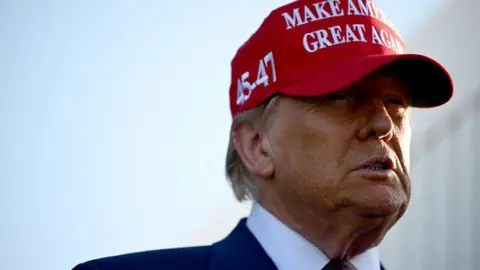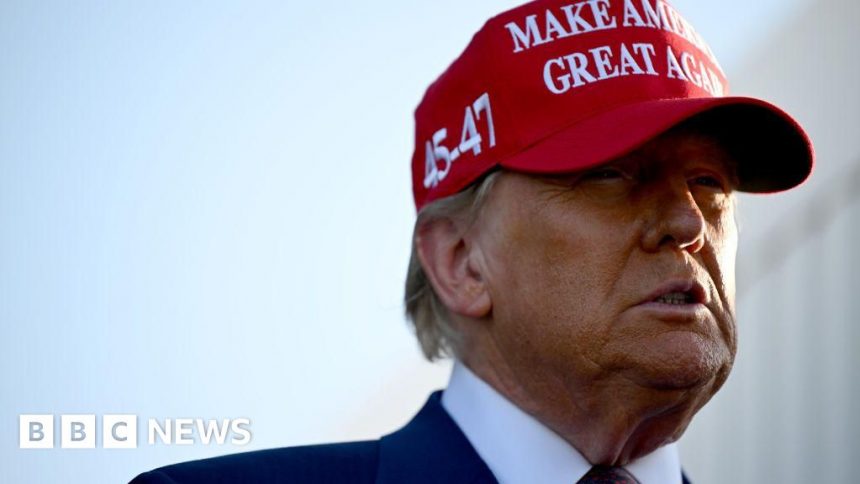Trump proves he is serious on tariffs – but it’s not about trade
 Getty Images
Getty ImagesIs Donald Trump serious about tariffs? This has been the question hanging over not just world markets but the whole world of economics.
The popular wisdom had become that he wasn’t really that serious, and the key bit of evidence for that was his nomination of hedge fund investor Scott Bessent as his Treasury Secretary, someone seen as a moderate when it came to tariffs compared with others whose names were floated for the role.
The answer overnight, though, was pretty brutal. Yes, he is serious, and in the most unexpected way. By choosing to target Mexico and Canada as well as China, he is confirming threats made on the campaign trail that appeared the most fanciful.
For starters he is willing to blow up the Mexico-Canada-America trade deal that he signed in his first term on day one of his second term.
What does a Trump free trade deal even mean now, if the new White House is willing to put tariffs on your country?
And specifically, the rationale for these moves is not mainly or even much about trade or economic policy. These tariffs are about getting Mexico, Canada and China to alter their policies on crackdowns over migration and illicit drugs.
Trump is using tariffs as a weapon of diplomacy, even coercion, on topics entirely unrelated to global trade.
Are the leaders of G20 nations with their own domestic audiences really going to roll over in order to give the new president a win?
They could choose to wait out the inevitable impact of Trump applying a 25% increase on the cost of two-fifths of US imports on US consumers and inflation.
What is also clear is that the selection of Bessent as Treasury Secretary will not temper the tariff push.
Amid the battle for his nomination he went out of his way to acknowledge the power of tariffs as a tool that had been pioneered by Alexander Hamilton himself, the first ever US Treasury Secretary.
But earlier this year he had also suggested that while tariffs might be used tactically, the main tool for the US rejuvenation of manufacturing would be a cheaper dollar.
Europe and the UK have been spared for now. But it is important to reiterate that these moves are not even the real bulk of the tariff policy outlined by Trump.
He wants to fundamentally change the global economic map, and reduce China and Europe’s trade surplus with the US, which he views as “ripping off America”.
The world is far more complicated now, however, than these binary economic relationships. The US is undoubtedly powerful enough to start rebalancing world trade.
Push things too far though, especially with G7 and G20 allies, and the US might find itself rather too isolated.








